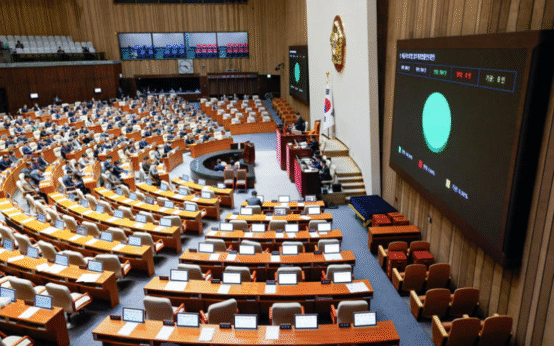Seoul Mayor Oh Se-hoon Criticizes Democratic Party’s Coupon Policy, Warns of Generational Debt Risk
South Korea’s ruling opposition, Seoul Mayor Oh Se-hoon has openly condemned the Democratic Party’s proposed coupon welfare program, warning that such populist measures could lead to what he calls generational debt. His remarks, delivered during a recent public forum in Seoul, have reignited debate over the country’s growing fiscal challenges and the sustainability of its welfare policies.
Oh Se-hoon’s Criticism of Democratic Party’s Coupon Plan
Mayor Oh argued that the Democratic Party’s plan to distribute welfare coupons to citizens under various social aid programs might offer short-term relief but long-term economy.
According to Oh, these handouts “encourage dependency rather than productivity” and burden future generations with rising national debt.

He further cautioned that “policies aimed at temporary popularity could weaken the economy’s foundation,” emphasizing that responsible governance means prioritizing long-term fiscal stability over short-term gains.
Understanding the Democratic Party’s Coupon Proposal
The Democratic Party of Korea introduced the coupon initiative as part of its broader strategy to boost consumer spending and support low-income households amid economic uncertainty.
However, critics including Oh say that without a clear funding source, the program could worsen government debt and inflate public spending. South Korea’s debt-to-GDP ratio has already been rising steadily, sparking concern among economists about long-term fiscal discipline.
Seoul Mayor’s Warning on Generational Debt
Mayor Oh’s use of the term generational debt reflects growing anxiety that younger South Koreans may inherit unsustainable financial burdens.
He argued that if the government continues with large-scale welfare projects without balancing budgets, “the next generation will be left paying the price for policies they never chose.”
This sentiment resonates strongly among young professionals and fiscal conservatives, who have expressed frustration over the government’s expanding welfare commitments amid slowing economic growth and high youth unemployment.
South Korea, one of Asia’s most advanced economies, has seen rising public debt due to expanded welfare and pandemic-era spending.


 Seoul Watches Kim Jong Un’s Beijing Visit with Caution
Seoul Watches Kim Jong Un’s Beijing Visit with Caution  Seoul Doubles Deposit Guarantee but Savers Still Cautious
Seoul Doubles Deposit Guarantee but Savers Still Cautious